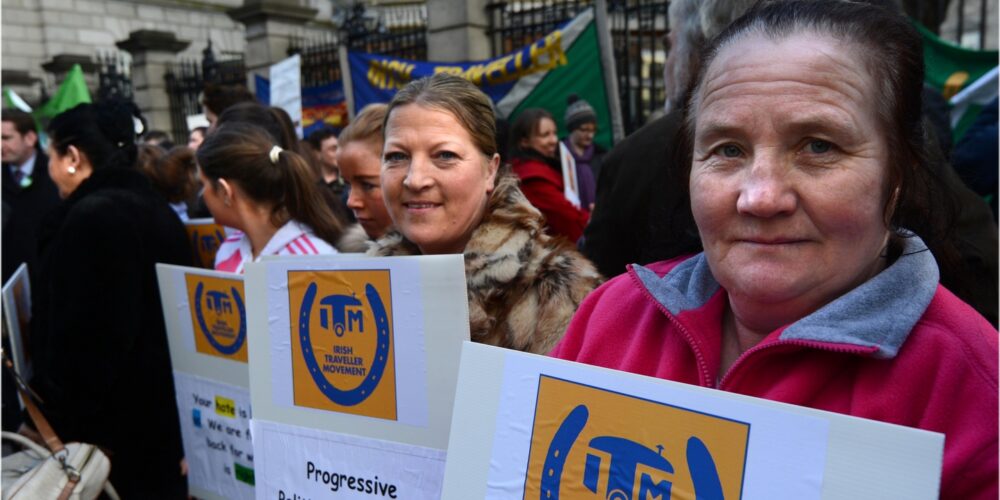In part 1 of this article (Socialist Voice, March 2021) I used official statistics showing the gap between Travellers and society in general in health, employment, and educational achievement. Travellers die earlier, have greater ill-health, have lower educational qualifications, have higher unemployment and have more overcrowding and poorer housing than society in general. As well as this material discrimination, Travellers have seen their culture, language and history ignored and disparaged by the state. The Report of the Commission on Intinerancy (1963) saw nothing of value in the Traveller way of life.
Government policy up to the 1990s advocated the assimilation of Travellers into settled society. At present, Government policy claims that integration, rather than assimilation, is the goal. It states that Travellers should be supported to develop, preserve and promote their cultural heritage. So far this seems to be limited to a promise to improve Traveller Pride Week and to “develop other supports for members of the Traveller community to develop new and ambitious initiatives exploring Traveller culture and traditions.”[1]
The Government must be forced to go beyond the recognition of Travellers as an ethnic minority and legislate to formalise that recognition by clarifying the rights accorded to them and to ensure that these rights are protected and promoted. This must include official recognition of Traveller culture, history, and language.
The Travellers’ language, Shelta, as one of the two languages native to Ireland, must be protected and supported. The Belfast Agreement states that all participants in the agreement recognise the importance of respect, understanding and tolerance in relation to the languages of Ireland’s various ethnic communities. Travellers are recognised as an ethnic minority on both sides of the border and as such must have their language recognised. By virtue of being a signatory to international agreements on national minorities, Ireland has an obligation to support the expression of Traveller identity.[2]
Nomadism is still central to Traveller culture, and, though most Travellers do not wish to return to a permanent nomadic life-style, they do want to travel for part of the year. It is an issue that could potentially increase anti-Traveller sentiment. The Casey presidential campaign has shown that the racist right could mobilise a lot of support against Travellers, and use nomadism as their excuse. State agencies such as the IDA would no doubt argue that halting-sites would deter foreign investment. But “it is not Travellers’ nomadism that fuels anti-Traveller racism; it is their group identity.”[3] As an expression of Traveller culture, the state must allow nomadism and repeal or amend all legal barriers to the practice.
The Traveller Culture and History in Education Bill (2018), which lapsed with the dissolution of the 32nd Dáil, called for an amendment to section 9(f) of the Education Act (1998), which states that a school shall use its resources to “promote knowledge and understanding of the culture and history of the Traveller community.” It must be reintroduced in the current Dáil.
History shows that minorities cannot depend on “enlightened” politicians to end discrimination against them. Most candidates for election do not bother to canvass halting-sites. If anti-Traveller racism is to be defeated and Travellers’ rights recognised and supported, the left must campaign alongside Travellers in their struggle for equality. We must raise the issue within the trade union movement, the women’s movement, students’ unions, housing and tenants’ groups, etc. We must reach out to the Traveller community and Traveller organisations and incorporate their struggle for equality in all anti-racist campaigning.
References
- National Traveller and Roma Inclusion Strategy, 2017–2021.
- Framework Convention for the Protection of National Minorities, article 12.1.
- Pavee Point Travellers’ Centre, “Assimilation Policies and Outcomes: Travellers’ Experience,” 2005.






